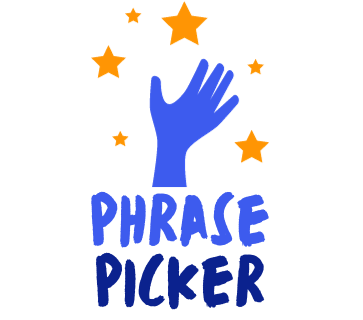Introduction
Reflecting on the simplicity and versatility of language, a particular phrase that often evokes positive communication is ‘glad you liked it.’ This prevalent expression reveals a depth of connection, empathy, and mutual respect. In this article, we delve into the numerous contexts where ‘glad you liked it’ is employed, and present various alternatives that encapsulate the same sentiment. We explore its usage in different social settings, the tone it sets in various conversations, and its potency in promoting positive interactions.
Key Takeaways
- The phrase “glad you liked it” is a polite and positive response to someone who has expressed enjoyment or approval of something you have done or offered.
- Utilizing the phrase appropriately can enhance your personal or professional communication by expressing a genuine appreciation for the other party’s positive reception.
- Alternatives to the phrase include happy to hear you enjoyed it, pleased you’re satisfied, and grateful for your approval.
Other Ways to Say “glad you liked it”
- Happy you enjoyed it
- Pleased it was to your liking
- Thrilled you found it appealing
- Delighted it met your approval
- Excited that it’s been appreciated
- Gratified you got satisfaction from it
- Elated you took pleasure in it
- Content that it found favour with you
- Overjoyed it hit the mark
- Encouraged by your positive feedback
- Relieved you found it good
- Cheered by your appreciation
- Buoyed by your enjoyment
- Reassured by your favourable reaction
- Heartened to know it was well-received
‘Delighted to Acknowledge Your Satisfaction’
In a more formal setting, instead of using the casual phrase ‘glad you liked it,’ you may opt for a more refined alternative. Phrases like ‘I am delighted to acknowledge your satisfaction’, ‘Your pleasant feedback is highly appreciated’, or ‘It gives me great pleasure to note your enjoyment’ can carry the same sentiment but in a more polished manner. These variances offer a touch of professionalism and convey your respect towards the recipient. Choosing a formal alternative can make your communication more engaging and suitable for a professional or formal context.
Dear Sir/Madam,
I’m reaching out in reference to the proposal we discussed last week. It is with intense satisfaction that I received your feedback. I am pleased to know you found it favorable. I look forward to our continued collaboration.
Best Regards,
[Your Name]
How To Answer Formal
When you receive positive feedback, responding with “Glad you liked it” may not capture the requisite level of professionalism. Formal responses usually entail a level of respectful acknowledgement reciprocated with courtesy. For example, if a colleague or manager highlights the quality of your work, a response like “I appreciate your positive feedback. It was my pleasure to render excellent service.” or “Thank you for acknowledging my efforts; your recognition means a lot to me.” expresses gratitude and underscores your commitment to top-tier performance.
The phrase “Glad you liked it” is a simpler and more casual response, commonly used in less formal environments or peer-to-peer interactions. Its usage is not necessarily wrong but appears softer and less formal. In more formal correspondence or interactions, an elevated level of communication is often appreciated. The context of use is vital, catering your response to suit the situation, whether during a business meeting, corporate correspondence, or a formal event.
- “Your feedback is highly appreciated, and I am pleased it met your expectations.”
- “Thank you for your kind words. I was happy to contribute to the success of the project.”
- “I am pleased to know you found my work satisfactory. Your acknowledgement motivates me to strive for further excellence.”
Dear Reader,
Thank you for your feedback on our recent article. It gives us immense pleasure to hear that it was well-received. We have put substantial effort into creating informative content and it is rewarding to recognize that
our work resonated with you.
We are committed in our endeavor to create quality content and hope our future works will also meet your expectations.
Best Regards,
The Editorial Team
A Casual Spin on ‘Glad You Liked It’
Shaking things up with casual language can often make your conversation more relatable and engaging. Instead of the formal ‘Glad you liked it’, you can opt for casual alternatives such as ‘Happy you dug it’, ‘Stoked you enjoyed it’, or ‘Awesome you loved it’. These relaxed options not only add a dash of character to your speech, but also make the conversation feel more personal and friendly. Employing this informal variant of ‘Glad you liked it’ makes your dialogue sound alive, genuine, and captivating.
Dear Jake,
I just read your feedback about our latest event. I’m psyched you enjoyed it! Your continued support and feedback are what helps us improve.
Best,
Emma
How To Answer Informally
Glad you liked it is a common phrase used in informal situations to express gratitude or satisfaction for another person’s positive feedback or enjoyment of something. This phrase is very versatile and can be used in a wide variety of scenarios. You can use it in response to someone complimenting your cooking, enjoying a movie you recommended, or even having a great time at a gathering you hosted. For instance, if someone says, ‘I loved your spaghetti,’ you can respond with, ‘Glad you liked it.’ Similarly, if a friend tells you, ‘The movie you recommended was excellent,’ you can answer, ‘Glad you liked it.’
The phrase is informal and friendly, making it a more relaxed and casual way to express appreciation than more formal phrases like ‘I’m pleased you enjoyed it.’ In the same vein, there are a number of alternatives to ‘Glad you liked it’ that can add variety to your informal interactions. Here are a few:
- ‘Happy to hear that.’
- ‘It’s great you enjoyed it.’
- ‘Exciting you had fun.’
- ‘Awesome you liked it.’
- ‘Delighted you had a good time.’
Each of these alternatives offers a slightly different nuance but essentially conveys the same sentiment as ‘Glad you liked it.’ Utilizing them can make your dialogue more engaging and varied.
Dear Reader,
Thank you for your feedback. I’m really glad you liked it! Your opinion is very valuable to us. Stay tuned for our upcoming articles and feel free to share your thoughts.
Best Regards,
Author’s Name
Is It Correct to Say “glad you liked it”?
The phrase ‘Glad you liked it’ is both grammatically correct and socially acceptable. It is often used in response to someone expressing their appreciation or enjoyment of something you’ve provided or done. The words convey the speaker’s pleasure at the positive feedback, which is why it’s generally considered a polite phrase to use in conversation.
However, like any phrase or statement, the perceived politeness or rudeness can be influenced by other factors, such as tone of voice, body language, and context. If ‘Glad you liked it’ is said sarcastically, it can potentially come across as rude or dismissive. But in most cases, this isn’t the phrase typically chosen for such purpose.
In broader terms, ‘Glad you liked it’ is a general response used in a wide range of situations – from a cook receiving compliments on their meal, to an artist hearing praise for their performance.
Some alternatives to this phrase might include ‘I’m happy to hear you enjoyed it’, ‘That’s good to hear’, or ‘Thank you for letting me know.’
To sum up, as long as it’s used in an appropriate context with sincere intent, there’s absolutely nothing incorrect about saying ‘Glad you liked it’. I hope that through this article, you have gained a better understanding of how to use this phrase effectively.



